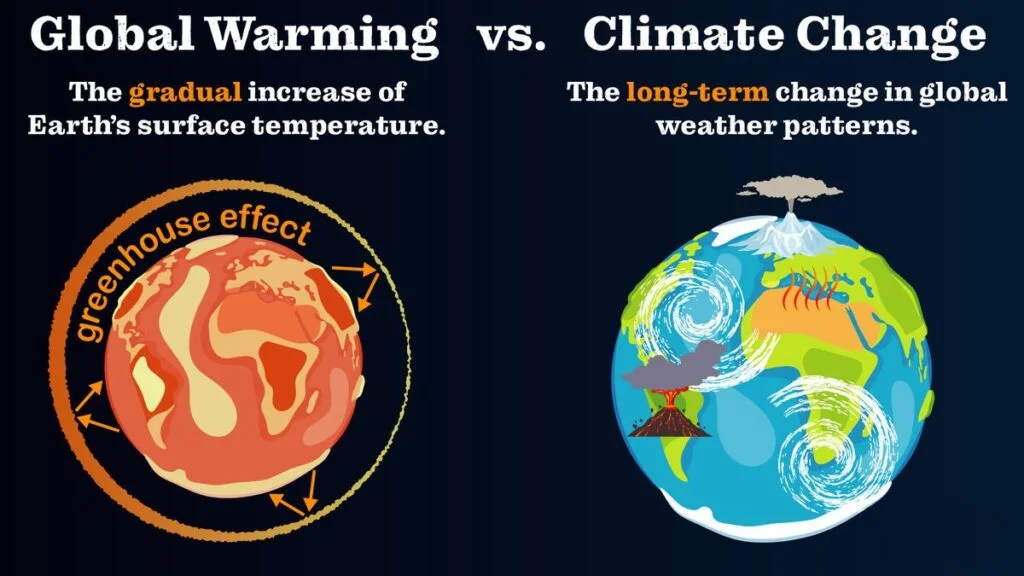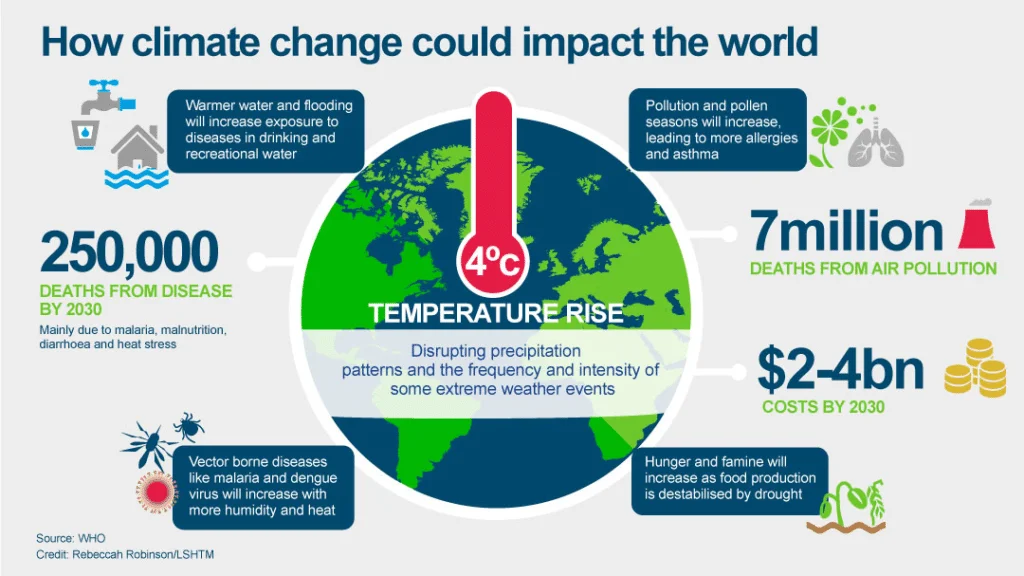Hey there!
Today, let’s understand the critical distinction between climate change and global warming.
Did you know warmer weather might bring something unexpected to our beloved U.S. waters? We’re talking about flesh-eating bacteria, and it’s becoming a more significant concern as our climate heats up.
So, what’s the deal?
Because of the rising temperatures, this Vibrio bacteria could start showing up more in our waters. This means more risks for anyone hitting the beaches or enjoying seafood.
Stick around to learn about the risks and what we can do to stay safe while enjoying our time in the water.
Dr. Emma Williams and other marine biologists likely emphasize that rising water temperatures due to climate change can alter the composition and behavior of bacteria in our waters.
Warmer temperatures can favor the growth of certain bacterial species while inhibiting others, which could disrupt the balance of microbial communities crucial to marine ecosystems.
Additionally, changes in ocean acidity due to increased carbon dioxide levels can also affect bacterial populations. Acidification can impact the physiology of bacteria, potentially altering their growth rates and metabolic functions.
Moreover, shifts in weather patterns, such as increased rainfall or altered ocean currents, can lead to changes in nutrient availability, which in turn can influence the abundance and distribution of bacteria in marine environments.
Defining Climate Change and Global Warming
Imagine the Earth as a vast mystery affected by temperature, rainfall, and wind changes. Climate change is like putting together that mystery, showing how these pieces shift over a long time. Global warming is a part of this mystery, specifically about the Earth getting hotter.
Climate Change: It’s all about how temperature and rainfall change in a place over a long period. It happens because of natural things (like volcanoes) and things people do (like burning fuels).
Global Warming: This is when the Earth’s average temperature goes up because people do things that make greenhouse gases. These gases trap heat, making the planet warmer.
Scientists used to think climate changes mainly were natural, caused by things like volcanoes.
But in the last hundred years, they found out that people are a big reason for the Earth getting hotter. This understanding grew stronger when scientists saw proof linking higher temperatures and changes in climate to things humans do, like burning fuels for energy.
Understanding these terms and how they’ve changed over time helps us see the importance of dealing with climate change.
It’s not just about the Earth getting warmer; it’s also about how it affects our world, including possible effects like the spread of flesh-eating bacteria in U.S. waters.
It’s like understanding how different parts of a big mystery fit together!
Global Warming: Causes and Effects
Global warming happens because people do things that make the air trap more heat. Do you know how a blanket keeps you warm?
Gases like carbon dioxide from burning coal and oil act like a blanket around the Earth, keeping heat in. When we cut down many trees, there are not enough places to soak up these gases, so they build up and make the Earth hotter.
This heating up causes significant changes. The world gets hotter, making heat waves worse and happening more often. Ice at the poles and on mountains melts faster because of the heat, which makes the oceans rise. That’s a problem for places near the coast—they might get flooded.
Also, animals that carry diseases, like mosquitoes, can move to new places because of the warmer weather. Even bacteria in water, like the flesh-eating kind, might appear in places they’ve never been before.
So, global warming isn’t just about the weather—it can also affect our health and where we live. That’s why it’s super important to do things that help stop global warming.
Climate Change: Comprehensive Overview
Climate change isn’t just about temperatures going up. It’s a big mix of things happening in nature and because of what we do. Natural stuff like volcanoes and changes in the sun mix with human actions like cutting down forests and using lots of fossil fuels.
All these things mess things up in different ways all over the world. We get crazier storms, longer times without rain, and sweltering days more often.
Animals and plants have difficulty adjusting, and some might disappear forever. Even the oceans, which are crucial for life, are changing significantly. They’re getting more acidic, which is bad news for sea creatures.
So, when we talk about climate change, it’s not just about rising heat. It’s about all these changes happening everywhere. That’s why we need to work together to stop making things worse and figure out how to deal with the changes already happening.
Key Differences Between Climate Change vs. Global Warming

Here are the critical differences between climate change and global warming in bullet points:
- Global Warming:
- Refers to the long-term increase in Earth’s average surface temperature.
- Primarily caused by human activities such as burning fossil fuels.
- Leads to an intensified greenhouse effect.
Climate Change:
- Encompasses a broader range of shifts in climate conditions.
- Includes alterations in temperature patterns, precipitation, sea levels, and overall climatic factors.
- Global warming is a significant part of climate change but doesn’t cover all its aspects.
Misconceptions and Usage:
- People often use “global warming” when discussing climate change, but it’s just one aspect.
- Using these terms interchangeably can lead to misunderstanding the complexity of climate shifts.
- Climate change involves various interconnected factors beyond rising temperatures due to global warming.
The Interconnection Between Climate Change and Global Warming
Climate change and global warming go hand in hand like two partners shaping our world. Global warming, caused by things like too much pollution, acts as a trigger for more considerable climate changes.
This warming messes with our usual weather patterns, making heat waves and storms more standard and robust.

It’s like stirring up nature’s balance. As things get hotter, ice melts, sea levels rise, and oceans warm up.
This shake-up creates new homes for flesh-eating bacteria to spread to places they couldn’t before, even in U.S. waters.
This shows how global warming connects to the bigger picture of climate change, affecting how our world works.
Addressing Skepticism and Denial
- Climate Doubts: Some question if climate change is real or caused by humans, citing occasional weather changes or selective data.
- Bigger Picture: Looking at extensive studies and evidence over the years, a clear trend emerges: human activities like pollution are warming our planet.
- Beyond Hotter Days: Climate change affects oceans, too, impacting marine life. Flesh-eating bacteria, usually in warmer zones, spread to new areas due to warming waters.
- Scientific Connections: Researchers have established strong links between rising temperatures and the spread of harmful bacteria.
- Trust in Research: Trusting this scientific work is crucial—it helps us grasp how our actions impact the environment and our well-being.
Actions and Solutions
Regarding the rising risk of flesh-eating bacteria in U.S. waters due to a warmer climate, teamwork and our actions matter big time.
We’ve got to work together because tackling climate change is a job for everyone—it’s a worldwide challenge. Our leaders need to make rules that cut down on stuff that makes the planet hotter, like fossil fuels, and encourage clean energy instead.
But it’s not just up to them. Little things we do, like using less plastic and choosing greener ways to live, also make a difference. We can all learn more about what helps the planet and spread the word.
By caring for our environment and supporting decisions that keep it safe, we can stop harmful bacteria from taking over our waters.
Usnews recently published an article on the same topic, raising awareness among people about it.
Conclusion
As we wrap up, remember: our actions shape our future waters. The scary idea of flesh-eating bacteria spreading because of warmer climates shows why we need to act fast.
We’ve learned much about climate change and global warming and how they’re connected. But knowing isn’t enough; we’ve got to do something.
Let’s use what we’ve learned to make changes, like using cleaner energy and supporting laws that help our planet.
We’re all in this together, and understanding and dealing with climate change and global warming is super important. It’s not just about protecting our waters; it’s about keeping life safe for everyone.
I hope you found this article informative regarding global warming and climate change.
Please share your thoughts and opinions in the comments below. Feel free to share this post with others, and consider subscribing to our email newsletter for regular updates delivered directly to your inbox.
Frequently Asked Questions
What is the primary difference between climate change and global warming?
Global warming refers to the increase in the Earth’s average surface temperature due to human activities. At the same time, climate change encompasses a broader range of changes in climate patterns, including temperature variations, precipitation shifts, and more.
Are climate change and global warming the same thing?
No, they are related but not interchangeable. Global warming refers to the increase in Earth’s temperature. At the same time, climate change includes various shifts in weather patterns, precipitation, and other climate-related factors caused by global warming and other human and natural influences.
How do human activities contribute to global warming and climate change?
Human activities, such as burning fossil fuels, deforestation, and industrial processes, release greenhouse gases like carbon dioxide (CO2), methane (CH4), and nitrous oxide (N2O) into the atmosphere. These gases trap heat, leading to the warming of the planet and contributing to climate change.
What are the impacts of global warming and climate change?
Global warming causes rising temperatures, melting ice caps, rising sea levels, and more frequent extreme weather events. Climate change leads to disruptions in ecosystems, shifts in agricultural patterns, threats to biodiversity, and increased risks to human health.
Can natural factors explain global warming and climate change?
While natural factors like volcanic eruptions and solar radiation can influence climate, scientific evidence overwhelmingly supports that human activities, particularly the release of greenhouse gases, are the primary drivers of the current global warming and climate change trends.
How can individuals contribute to mitigating climate change and global warming?
Individuals can reduce their carbon footprint by conserving energy, using renewable sources, adopting sustainable practices, reducing waste, supporting eco-friendly policies, and advocating for systemic changes.
Is it too late to address climate change and global warming?
While the impacts are already being felt, concerted global efforts to reduce emissions and adapt to changing climates can still mitigate the worst effects of climate change. Immediate action is crucial to limit further damage.
What role does the Paris Agreement play in addressing climate change?
The Paris Agreement is an international treaty aiming to limit global warming and address climate change by setting targets for reducing greenhouse gas emissions, fostering international cooperation, and supporting adaptation measures.
Are there any positive developments or solutions in combating climate change and global warming?
Yes, advancements in renewable energy technologies, sustainable practices in agriculture and industry, reforestation efforts, and international agreements demonstrate progress in addressing these challenges.
How can I stay informed and take action on climate change?
You can stay informed through reputable sources, scientific reports, and environmental organizations. Additionally, participating in local initiatives, supporting green policies, and advocating for change in your community are impactful ways to take action.
 Twitter
Twitter Facebook
Facebook